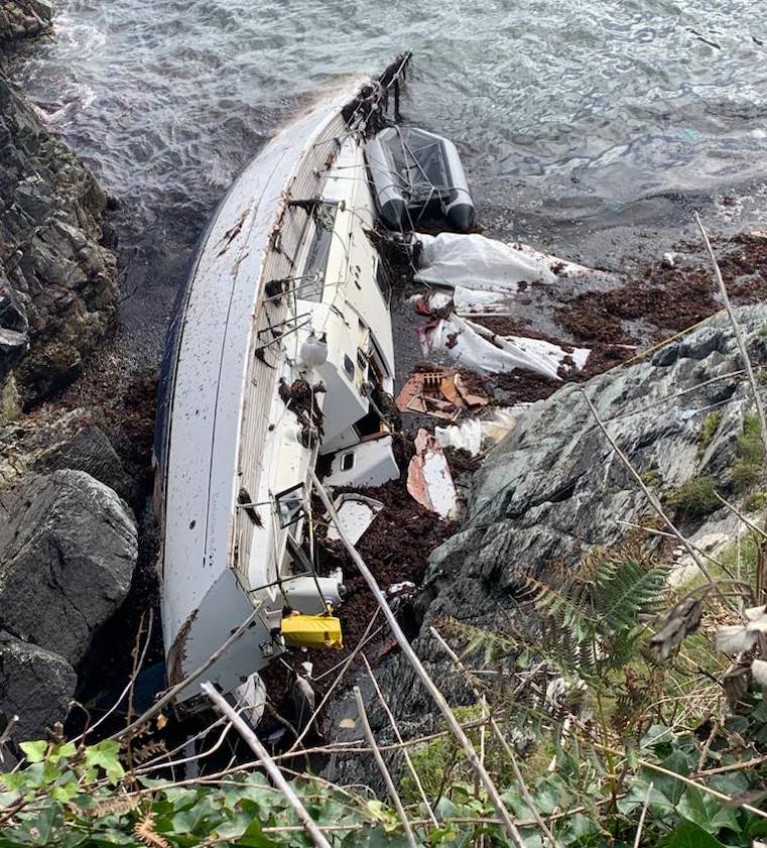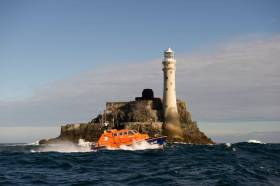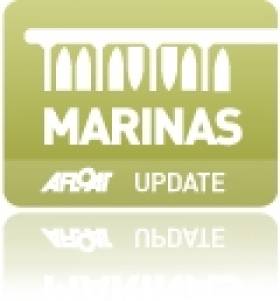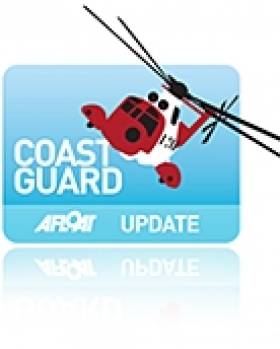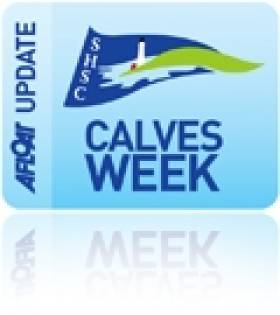Displaying items by tag: Crookhaven
Yachts at Crookhaven, West Cork Damaged in Storm Francis
The West Cork harbour of Crookhaven took a hammering earlier this week in Storm Francis with at least one sailing boat lost from its mooring on Tuesday.
Footage online shows the village pontoon swaying in the Force 11 gusts (see vid via Facebook below) as Cork County battled with a Status Yellow Weather Alert.
As Afloat previously reported, Baltimore's all-weather lifeboat was called to two yachts in difficulty in Crookhaven. The two vessels, one with four onboard and the other with two, were dragging their moorings in the strong Force 9 winds, gusting up to Force 11, and rough sea conditions with a five-metre swell.
It's not the only West Cork Harbour affected either in this month's storms. More boats were damaged at nearby Baltimore.
In a tough month for Cork sailing, as Tom MacSweeney reports, the new Cove Sailing Club marina in Cork Harbour was damaged in the earlier Storm Ellen.
Baltimore Lifeboat Secures Vessels In Trouble At Crookhaven
#RNLI - In the first of two incidents yesterday morning (Thursday 3 August), Baltimore RNLI launched to reports of a vessel adrift in Crookhaven Harbour.
The vessel, a 4m Boston Whaler powerboat, had broken from its mooring in strong winds and was drifting outside the West Cork harbour.
There was no one on board the vessel, and weather conditions at the time were poor, with an easterly force 6-7 wind and 4-5m sea swell.
Baltimore's lifeboat arrived on scene at 8.38am, some 51 minutes after launch, and established a tow to bring the vessel back into the harbour, where it was secured to a mooring.
As the lifeboat was departing to return to station at 9.11am, the Irish Coast Guard contacted them to investigate another boat in trouble in the area.
The second vessel, a 20ft Merry Fisher pleasure boat with no people on board, had gone ashore on rocks in Crookhaven.
Due to the position of the vessel on the shoreline, coxswain Aidan Bushe decided to launch the Y-boat from the stern ramp of the lifeboat.
The Y-boat, with Kieran Collins and David Ryan on board, secured a tow and pulled the casualty vessel clear of the shoreline. The lifeboat then took up the tow and secured the vessel on a mooring.
Speaking following the callout, Baltimore RNLI volunteer lifeboat press officer Kate Callanan said: “It is advisable in such incidents, where boats get into trouble near the shoreline, to call the coastguard for assistance. This reduces the risk of people getting themselves into a dangerous situation.
“If you get into difficulty at sea, call 999 or 112 and ask for the coastguard.”
Bushe, Ryan and Collins were joined on yesterday’s callout by mechanic Sean McCarthy and crew members Jerry Smith and Don O’Donovan. Micheal Cottrell provided shore crew assistance at the lifeboat house.
French SMA Yacht Recovered & Brought to Crookhaven
An 60–foot round the world French racing yacht is berthed in Crookhaven Bay in County Cork this morning having been abandoned mid–Atlantic three weeks ago and brought to the Irish harbour by a recovery team that included Kinsale's Marcus Hutchinson.
Since Paul Meilhat was airlifted off SMA on 15th December, during the transatlantic Race in which Ireland's Enda O'Coineen finished third, the 60-footer has drifted up from the Azores to Ireland over the past twenty days, during which the SMA team has attempted several recovery operations, in spite of some horrendous weather.
On 5th January, the boat was finally recovered 100 miles off the coast of Ireland. SMA is now safe in Crookhaven Bay in SW Ireland. On board, the boat captain, Marc Liardet and his team are trying to sort the boat out. Their goal is to get her back to France and to Port La Forêt as soon as the weather allows.
In early January, two operations were set up at the same time with Mer Agitee, the owner of the monohull and the boat's insurers, Pantaenius. On 4th January, on a boat was chartered by the insurance company with the ocean racer, Adrien Hardy on board. He managed to get aboard SMA, in some very rough conditions in 40 knots of wind and 20-foot high waves, while the Mer Agitee shorte team joined in aboard an Irish tug.
As the Mer Agitee predicted, after following the progress of SMA thanks to her Argos beacon, following on from the operation to rescue Paul Meilhat, the mast was still in place.
The recovery team in Ireland:
Marcus Hutchinson, Marc Liardet, Anne Liardet, Antoine Brunel and Damien Guillou.
Missing Bermuda Yacht Arrives Safely in Co Kerry
A yacht that was reported missing in the Atlantic between Bermuda and Ireland sailed safely into port in Co Kerry this afternoon.
As previously reported on Afloat.ie, the Golden Eagle has been at the centre of an air and sea search operation since failing to arrive at its expected destination of Crookhaven in Co Cork on 15 September.
The yacht - crewed by a 69-year-old Norwegian and a 60-year-old New Zealander - had been out of radio contact since leaving Bermuda in mid August.
But a spokesperson for the Irish Coast Guard has since revealed that the men intentionally turned off their handheld VHF radio to save battery power until they were close to port.
The boat dropped anchor in Portmagee, Co Kerry at 3pm this afternoon, reporting only minor damage to its sails and rigging due to adverse weather which slowed their progress.
More from RTE here.


























